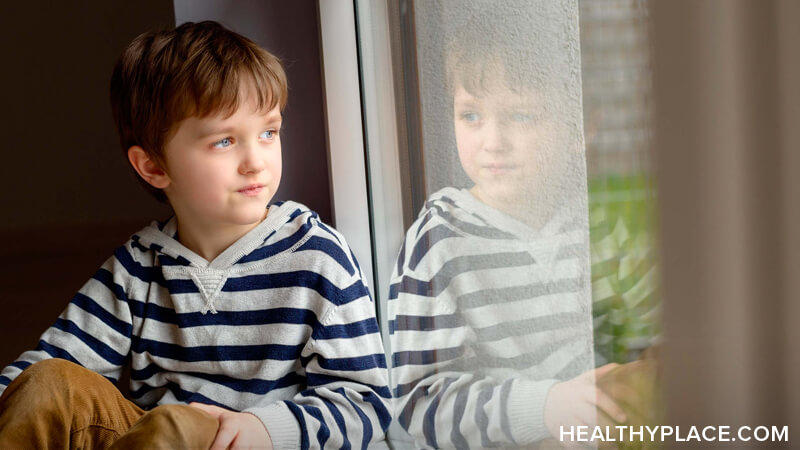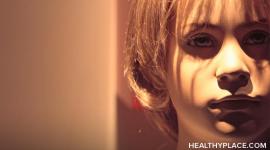What Causes Bipolar Disorder in Kids?
 Many people want to know what causes bipolar disorder in kids. This is understandable for so many reasons, not the least of which being parents wanting to know if they can prevent it in their child. After all, bipolar disorder in kids can be very debilitating. But the causes of childhood bipolar disorder are complex and not well understood.
Many people want to know what causes bipolar disorder in kids. This is understandable for so many reasons, not the least of which being parents wanting to know if they can prevent it in their child. After all, bipolar disorder in kids can be very debilitating. But the causes of childhood bipolar disorder are complex and not well understood.
Overall Causes of Bipolar Disorder in Children
Genetic factors play a big role in pediatric bipolar disorder. If a child has bipolar disorder, it is highly likely that a first-degree relative (mother, father, sister, brother) also has bipolar disorder. This does not mean that bipolar disorder in children is entirely genetic, however.
There are also environmental factors that play a role in childhood bipolar disorder. While no single factor is the cause, per se, each factor is known to be associated with bipolar disorder in children.
- Poor parent-child relationships
- Lower socioeconomic status
- Abuse of psychoactive drugs
- Occurrence of attention-deficit/hyperactivity disorder
- Decreased behavior inhibition and decreased frustration tolerance present at preschool age
- Early developmental delays in language, social and motor development may occur 10-18 years before an official, diagnosable bipolar symptoms
- A lower intelligent quotient (IQ) corresponding to the severity of the illness
- Parental smoking
It’s worth noting that many incarcerated youth have mental illnesses. It’s common for a youth that experiences a severe bipolar mania (a highly elevated mood), for example, to have legal problems due to the disinhibition that occurs in this state. This can lead to public disorderly content, verbal and physical altercations, theft and drug seeking or use, to name just a few of the concerns.
Of course, any child can experience one or more of these factors and not have or develop childhood bipolar disorder. It is likely that many of these factors work together to cause bipolar disorder in children.
Some of the above factors can be mitigated by parents, but as genetics is the biggest factor in developing bipolar disorder (about 65%, according to studies on identical twins), it is unlikely that bipolar disorder can be prevented.
Risk of Passing Bipolar from Parent to Child
If a parent has bipolar disorder, his or her offspring are at a high risk of serious mental illness. This includes an elevated risk for bipolar disorder, major depressive disorder, anxiety disorder, sleep disorder and substance use disorder.
This risk that a parent with bipolar disorder will pass it on to a child is 30-35%. If both parents have bipolar disorder, the risk is approximately 70-75%.
This doesn’t necessarily mean that the child will develop bipolar disorder in childhood, however. He or she may develop it in adolescence or adulthood.
Is Childhood Bipolar Disorder Related to Trauma?
Childhood trauma is associated with a greater risk for bipolar disorder. Moreover, it is related to an earlier onset and a more severe course of symptoms as well as increased risk for suicide and substance use disorders. This means that those who have experienced early life trauma are more likely to develop childhood bipolar disorder and they are also more likely to develop it during their lifetime overall.
Dealing with the Risks of Childhood Bipolar Disorder
While all this can seem bleak for some children, it’s important to remember that risk factors are just that – risk factors. One or more can be present in anyone and that person may not develop bipolar disorder at any time in his or her life.
APA Reference
Tracy, N.
(2021, December 28). What Causes Bipolar Disorder in Kids?, HealthyPlace. Retrieved
on 2026, February 25 from https://www.healthyplace.com/bipolar-disorder/bipolar-children/what-causes-bipolar-disorder-in-kids



